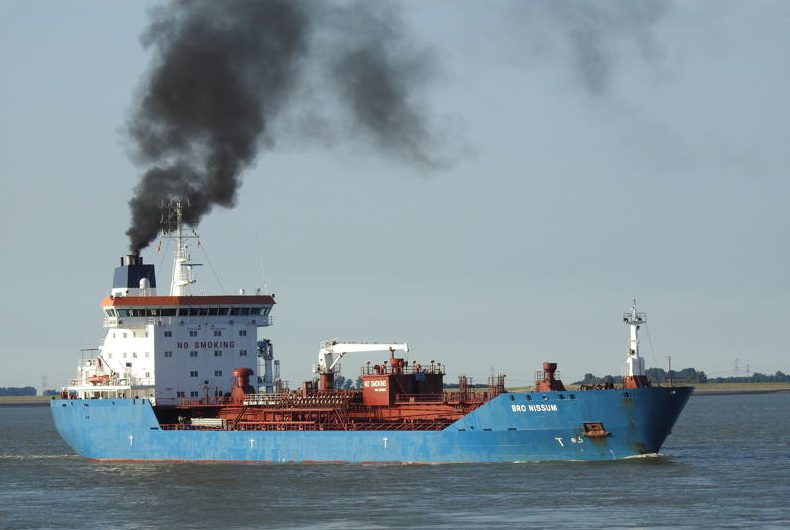A coalition of shipowners and operators, l[ds_preview]ogistics businesses, suppliers to the maritime industry, industry associations, and NGOs want a »clear, ambitious long-term objective« for shipping emissions to be set at MEPC 70.
The Danish Shipowners’ Association, Royal Belgian Shipowners’ Association, Maersk, Scandlines, J. Lauritzen, Unifeeder, Cargill and 45 other businesses and organisations across the shipping and marine industry are calling for the International Maritime Organization (IMO) to act on shipping emissions at the 70th meeting of its Marine Environmental Protection Committee (MEPC) next week.
There are no plans for this type of legislation currently on the table, and consideration of a global emissions cap for shipping was pushed aside as recently as 2015. The latest call made to the IMO to develop a greenhouse gas (GHG) emissions-reduction target failed to gain approval.
The letter to 171 heads of state of the member countries of the IMO states that it is time for the world to recognise the important role the global shipping industry must play in holding global temperatures »well below two degrees Celsius«. It calls on the IMO to »match the ambition of pace of UNFCCC [the organisation responsible for COP 21], establish shipping’s fair share of the global responsibility to address climate change and take ambitious actions that help drive investment in low-carbon solutions«.
Shippers under increased pressure
»Our members, shippers, and cargo owners that use sea freight to support their global businesses are under increased pressure to manage and report on their carbon intensity, including along their supply chains«, said Chris Welsh, secretary general, Global Shippers Forum. To achieve this, it is essential that effective measurement methods are in place, that shipowners have clear incentives to provide cleaner vessels, and that the industry has a clear goal on emissions.
John Kornerup Bang, Chief Advisor Climate Change, Maersk, commented: »We will continue working to reduce CO2 emissions in the years to come, striving to reach our 60% relative reduction by 2020. But we are reaching the point where it will be more and more challenging to drive significant reductions on our own. Global regulation is therefore needed, more than ever.
Emissions will rise by up to 250 %
International maritime shipping, which transports 90% of global trade, emits more GHGs annually than the entire country of Germany – the nation with the sixth-highest emissions. The IMO’s GHG Report 2014 predicts emissions from the industry will rise by up to 250% by 2050. Yet, unlike Germany, shipping is not subject to any international treaty on climate change, nor to any country-specific emissions reduction legislation, and has not set any emissions-reductions targets of its own through its UN governing body, the IMO.
»Transparency and environmental responsibility are key pillars of how we work at HBC Hamburg Bulk Carriers,« said Capt. Stefan Bülow, Managing Director of Hamburg Bulk Carriers (HBC). »We joined this letter to support a mature and positive attitude to the ability of the industry to reduce its emissions and create sustainability«.



















